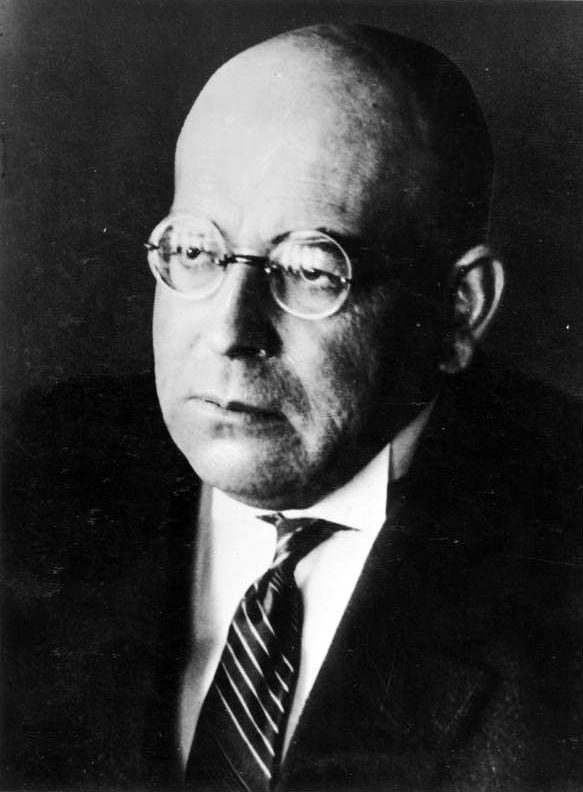
Oswald Spengler
Oswald Arnold Gottfried Spengler (German: [ˈɔsvalt ˈʃpɛŋlɐ]; 29 May 1880 – 8 May 1936) was a German polymath, whose areas of interest included history, philosophy, mathematics, science, and art, as well as their relation to his organic theory of history. He is best known for his two-volume work The Decline of the West (Der Untergang des Abendlandes), published in 1918 and 1922, covering human history. Spengler's model of history postulates that human cultures and civilizations are akin to biological entities, each with a limited, predictable, and deterministic lifespan.
Oswald Spengler
The Decline of the West (1918, 1922)
Spengler predicted that about the year 2000, Western civilization would enter the period of pre‑death emergency whose countering would lead to 200 years of Caesarism (extra-constitutional omnipotence of the executive branch of government) before Western civilization's final collapse.[5]
Spengler is regarded as a German nationalist and a critic of republicanism, and he was a prominent member of the Weimar-era Conservative Revolution. The Nazis had viewed his writings as a means to provide a "respectable pedigree" to their ideology,[6] Spengler later criticized Nazism due to its excessive racialist elements. He saw Benito Mussolini, and entrepreneurial types, like the mining magnate Cecil Rhodes,[7] as examples of the impending Caesars of Western culture—later showcasing his disappointment of Mussolini's colonialist adventures.[8]
Biography[edit]
Early life and family[edit]
Oswald Arnold Gottfried Spengler was born on 29 May 1880 in Blankenburg, Duchy of Brunswick, German Empire, the oldest surviving child of Bernhard Spengler (1844–1901) and Pauline Spengler (1840–1910), née Grantzow, the descendant of an artistic family.[9][10] Oswald's elder brother was born prematurely in 1879, when his mother tried to move a heavy laundry basket, and died at the age of three weeks. Oswald was born ten months after his brother's death.[11] His younger sisters were Adele (1881–1917), Gertrud (1882–1957), and Hildegard (1885–1942).[9] Oswald's paternal grandfather, Theodor Spengler (1806–1876), was a metallurgical inspector (Hütteninspektor) in Altenbrak.[12]
Spengler's maternal great-grandfather, Friedrich Wilhelm Grantzow, a tailor's apprentice in Berlin, had three children out of wedlock with a Jewish woman named Bräunchen Moses (c. 1769–1849) whom he later married, on 26 May 1799.[13] Shortly before the wedding, Moses was baptized as Johanna Elisabeth Anspachin; the surname was chosen after her birthplace—Anspach.[14] Her parents, Abraham and Reile Moses, were both deceased by then. The couple had another five children,[13] one of whom was Spengler's maternal grandfather, Gustav Adolf Grantzow (1811–1883)—a solo dancer and ballet master in Berlin, who in 1837 married Katharina Kirchner (1813–1873), a solo dancer from a Munich Catholic family;[14] the second of their four daughters was Oswald Spengler's mother Pauline Grantzow.[15] Like the Grantzows in general, Pauline was of a Bohemian disposition, and, before marrying Bernhard Spengler, accompanied her dancer sisters on tours. In appearance, she was plump. Her temperament, which Oswald inherited, was moody, irritable, and morose.[16]
Education[edit]
When Oswald was ten years of age, his family moved to the university city of Halle. Here he received a classical education at the local Gymnasium (academically oriented secondary school), studying Greek, Latin, mathematics and sciences. Here, too, he developed his propensity for the arts—especially poetry, drama, and music—and came under the influence of the ideas of Johann Wolfgang von Goethe and Friedrich Nietzsche.[1] At 17, he wrote a drama titled Montezuma.[10]
After his father's death in 1901, Spengler attended several universities (Munich, Berlin, and Halle) as a private scholar, taking courses in a wide range of subjects. His studies were undirected. In 1903, he failed his doctoral thesis on Heraclitus—titled Der metaphysische Grundgedanke der heraklitischen Philosophie (The Fundamental Metaphysical Thought of the Heraclitean Philosophy) and conducted under the direction of Alois Riehl—because of insufficient references. He took the doctoral oral exam again and received his PhD from Halle on 6 April 1904. In December 1904, he began to write the secondary dissertation (Staatsexamensarbeit) necessary to qualify as a high school teacher. This became The Development of the Organ of Sight in the Higher Realms of the Animal Kingdom (Die Entwicklung des Sehorgans bei den Hauptstufen des Tierreiches), a text now lost.[17] It was approved and he received his teaching certificate. In 1905, Spengler suffered a nervous breakdown.
Career[edit]
Spengler briefly served as a teacher in Saarbrücken then in Düsseldorf. From 1908 to 1911 he worked at a grammar school (Realgymnasium) in Hamburg, where he taught science, German history, and mathematics. Biographers report that his life as a teacher was uneventful.
In 1911, following his mother's death, he moved to Munich, where he would live for the rest of his life. He lived as a cloistered scholar, supported by his modest inheritance. Spengler survived on very limited means and was marked by loneliness. He owned no books, and took work as a tutor or wrote for magazines to earn additional income. Due to a severe heart problem, Spengler was exempted from military service.[10] During the war, his inheritance was useless because it was invested overseas; thus, he lived in genuine poverty for this period.
He began work on the first volume of The Decline of the West intending to focus on Germany within Europe. The Agadir Crisis of 1911 affected him deeply, though, so he widened the scope of his study. According to Spengler the book was completed in 1914, but the first edition was published in the summer of 1918, shortly before the end of World War I.[18] Spengler wrote about the years immediately prior to World War I in Decline:
Views[edit]
Influences[edit]
In the introduction to The Decline of the West, Spengler cites Johann W. von Goethe and Friedrich Nietzsche as his major influences. Goethe's vitalism and Nietzsche's cultural criticism, in particular, are highlighted in his works.[30]
Legacy[edit]
Spengler influenced other academics, including historians Arnold J. Toynbee,[45] Carroll Quigley, and Samuel P. Huntington. Others include fascist ideologues Francis Parker Yockey and Oswald Mosley.[46] John Calvert notes that Oswald Spengler's criticism of Western civilisation remains popular among Islamists.[47]